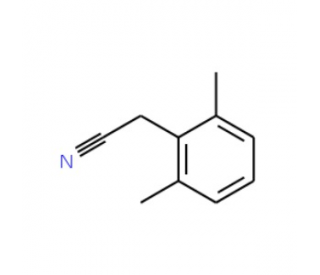详细说明
Species Reactivity
Mouse
Specificity
Detects mouse Tryptase epsilon /BSSP‑4 in ELISAs.
Source
Monoclonal Rat IgG 2A Clone # 246702
Purification
Protein A or G purified from hybridoma culture supernatant
Immunogen
Mouse myeloma cell line NS0-derived recombinant mouse Tryptase epsilon /BSSP‑4
Ala33-Ser306
Accession # Q9ER10Formulation
Lyophilized from a 0.2 μm filtered solution in PBS with Trehalose. *Small pack size (SP) is supplied as a 0.2 µm filtered solution in PBS.
Label
Unconjugated
Applications
Recommended
ConcentrationSample
Mouse Tryptase epsilon /BSSP-4 Sandwich Immunoassay
Reagent
ELISA Capture (Matched Antibody Pair)
2-8 µg/mL
Mouse Tryptase epsilon /BSSP‑4 Antibody (Catalog # )
ELISA Detection (Matched Antibody Pair)
0.5-2.0 µg/mL
Mouse Tryptase epsilon /BSSP‑4 Biotinylated Antibody (Catalog # )
ELISA Standard
Recombinant Mouse Tryptase epsilon/BSSP-4 Protein, CF (Catalog # )
Please Note: Optimal dilutions should be determined by each laboratory for each application. are available in the Technical Information section on our website.
Preparation and Storage
Reconstitution
Reconstitute at 0.5 mg/mL in sterile PBS.
Shipping
The product is shipped at ambient temperature. Upon receipt, store it immediately at the temperature recommended below. *Small pack size (SP) is shipped with polar packs. Upon receipt, store it immediately at -20 to -70 °C
Stability & Storage
Use a manual defrost freezer and avoid repeated freeze-thaw cycles.
12 months from date of receipt, -20 to -70 °C as supplied.
1 month, 2 to 8 °C under sterile conditions after reconstitution.
6 months, -20 to -70 °C under sterile conditions after reconstitution.
Background: Tryptase epsilon/BSSP-4
Tryptase epsilon, brain specific serine protease 4 (BSSP-4) and brain serine protease 2 (BSP-2) are different names given for the same serine protease that is encoded by the PRSS22 gene (1‑3). Initially identified having brain-specific expression, mouse Tryptase epsilon is preferentially expressed in epithelium-rich tissues such as the lung and eye, which is similar to its human counterpart (3). The mouse protein is synthesized with a signal peptide (amino acid residues 1 to 32), a pro peptide (residues 33 to 49) and a mature chain (residues 50 to 306) corresponding to the serine protease domain. The full-length protein was expressed and the secreted protein purified. The N-terminal sequencing result indicates that the purified protein corresponds to the pro enzyme. After activation with thermolysin, the enzyme has low activity against peptide substrates tested, but high activity against thioester substrates. The thioester activity is inhibited by 2 mM AEBSF (R&D Systems, Catalog # EI001), a general serine protease inhibitor, and by recombinant human Serpin A5 (R&D Systems, Catalog # 1266-PI).
References:
Wong, G.W. et al. (2001) J. Biol. Chem. 276:49169.
Davies, B.J. et al. (1998) J. Biol. Chem. 273:23004.
Wong, G.W. et al. (2004) J. Biol. Chem. 279:2438.
Entrez Gene IDs:
64063 (Human); 70835 (Mouse)
Alternate Names:
BSP-2; BSSP4; BSSP-4; hBSSP-4; MGC9599; prosemin; protease, serine S1 family member 22; protease, serine, 22; PRSS22; serine protease 22; serine protease 26; SP001LA; Tryptase epsilon; UNQ302/PRO343











 粤公网安备44196802000105号
粤公网安备44196802000105号